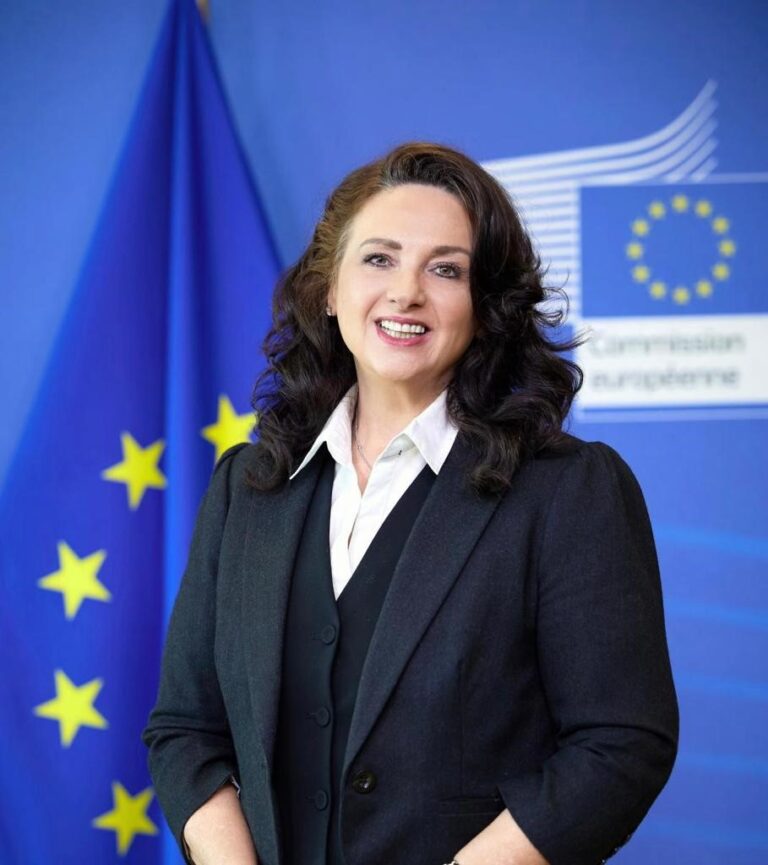
Helen Dalli
Dr. Helena Dalli is the first EU Commissioner for Equality.Her role is to deliver on the Union of Equality chapter within the Political Guidelines of President von der Leyen, by strengthening Europe’s commitment to equality and inclusion in all of its senses.Prior to taking her role as Commissioner, Dr Helena Dalli held various political roles in Malta including Member of Parliament (1996 to 2019), Minister for European Affairs and Equality (2017 to 2019), and Minister for Social Dialogue, Consumer Affairs and Civil Liberties (2013-2017).She was also opposition Shadow Minister for public administration, equality, public broadcasting, and national investments (1998-2013) and Junior Minister for Women’s Rights in the Office of Prime Minister (1996-1998).Dr Helena Dalli holds a PhD in Political Sociology from the University of Nottingham, and lectured in Economic and Political Sociology, Public Policy, and Sociology of Law at the University of Malta.
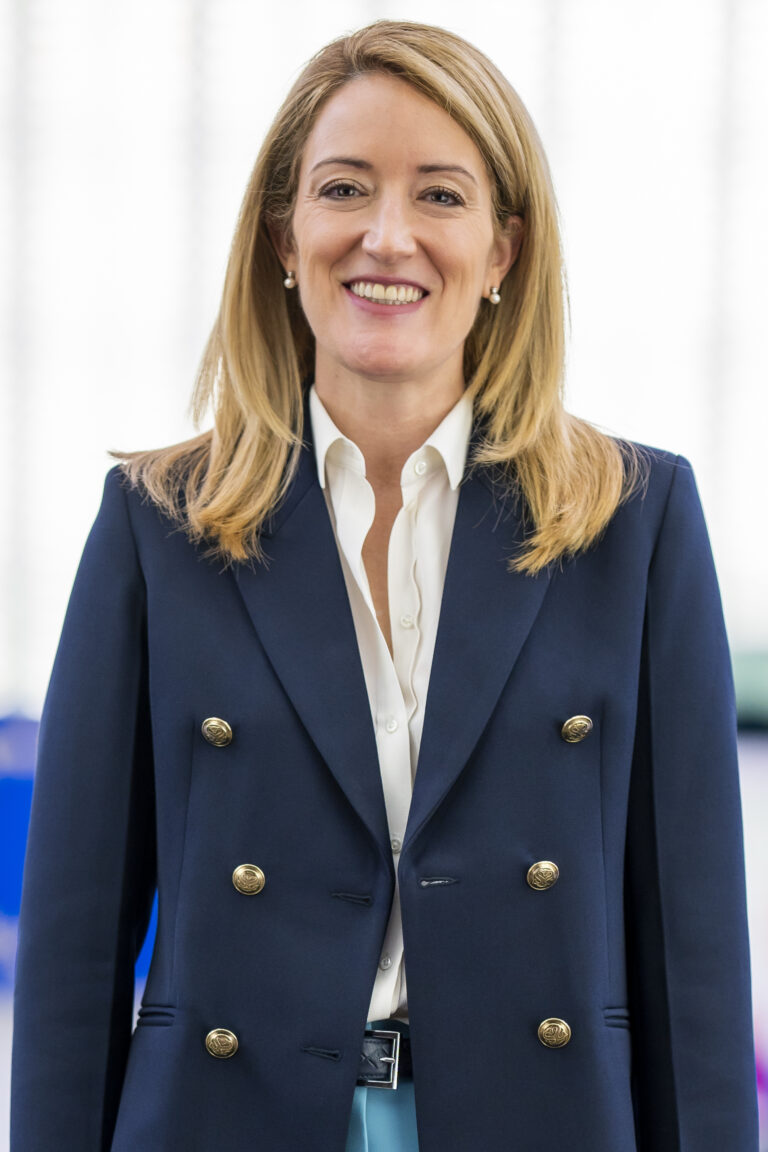
Roberta Metsola
President of the European Parliament, elected in January 2022. She was first elected to the European Parliament in 2013, becoming one of Malta’s first female Members of the European Parliament. Metsola was re-elected in 2014 and then again in 2019.In 2020, she was elected as the First Vice-President of the European Parliament, becoming the first Maltese national to hold the post. Within the European Parliament, President Metsola was the EPP Group’s Coordinator in the Committee on Civil Liberties, Justice and Home Affairs, between January 2017 and 2020. Prior to her election as a MEP, President Metsola served within the Permanent Representation of Malta to the European Union and later served as the legal advisor to the High Representative of the European Union for Foreign Affairs and Security Policy. In her student years, she campaigned actively for Malta’s EU membership, and was active in various organisations, acting as the Secretary-General for the European Democrat Student organisation between 2002-2003. She completed an Erasmus exchange in France and graduated from the University of Malta and the College of Europe in Bruges.
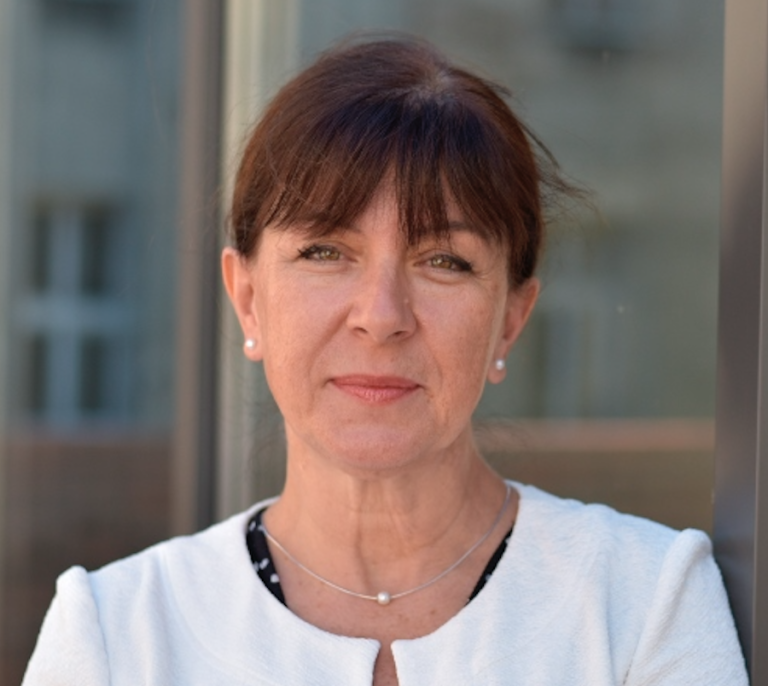
Ewa Jarosz
Professor, social pedagogue, from the Institute of Pedagogy of the University of Silesia in Katowice. Vice-Rector for staff development at the University of Silesia in Katowice, responsible for the development of the University of Silesia’s equality policy, co-author of the University of Silesia Gender Equality Plan. Member of the Committee of Pedagogical Sciences of the Polish Academy of Sciences in the 2020-2024 term. In the years 2011-2018, Social Advisor to the Ombudsman for Children. Vice-President of the Association of Socially Engaged Educators. Researcher on children’s rights and the well-being of children and youth.

JosAnn Cutajar
JosAnn Cutajar is a lecturer in Gender and Sexualities Department at the University of Malta. She has over 20 years of professional experience as a gender and community development expert. She has worked as a consultant with various Maltese government entities. From 2017-2020 she acted as the coordinator for the Consultative Council for Women’s Rights within the Ministry for Justice, Equality and Governance. Between 2012-2017 she helped set up the Cottonera Resource Centre within the University of Malta as a university outreach post in a socially deprived area. This project won the 2016 EPALE award for community engagement. Her publications focus on community development and issues relating to gender and social justice. She has also been involved in a number of EU projects, namely GEPARD (Erasmus+), GenderAction (Horizon 2020) and reSEArch-EU (Horizon 2020). As Chair of the Gender Equality and Sexual Diversity Committee (2020 to date), she has helped design and implement UM’s Equity Plan.
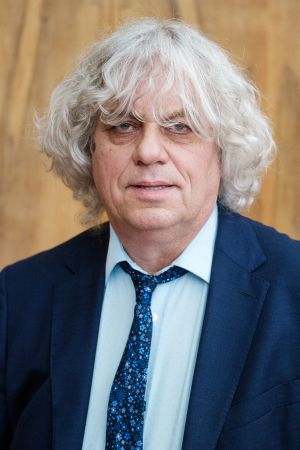
Zbyszko Melosik
Zbyszko Melosik, Adam Mickiewicz University in Poznań, vice-rector for social relations, professor of social sciences, sociologist of culture and education, Faculty of Educational Studies, the author of many books, including “Scientific discipline and identity of scientist”(2024).
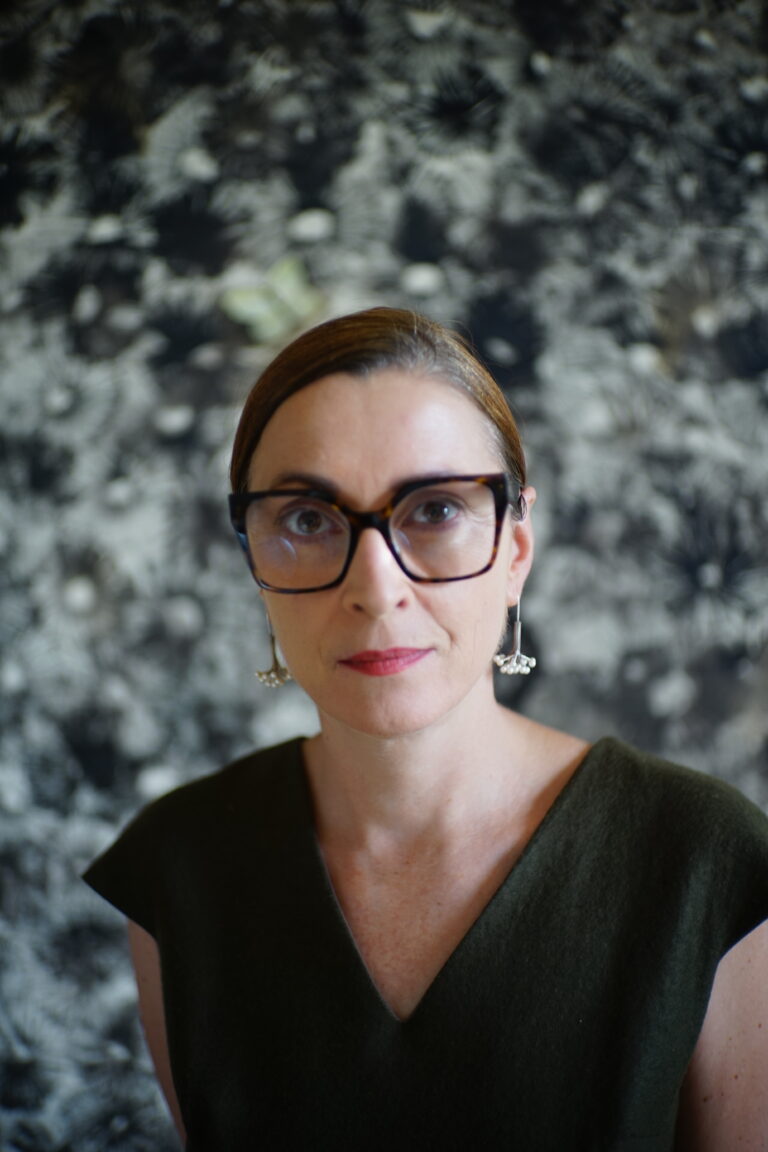
Marcela Linkova
The head of the Centre for Gender and Science at the Institute of Sociology of the Czech Academy of Sciences. Her research focuses on the sociology of gendered organisations, gender-based violence in academia, governance of research, and public policies for gender equality in R&I. The coordinator of the project GENDERACTIONplus from Horizon Europe.
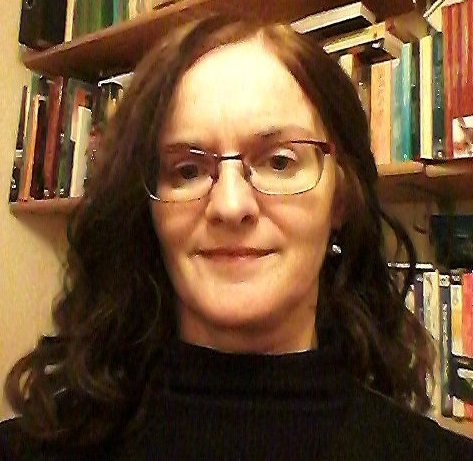
Caitriona Ni Laorie
Senior Lecturer in the School of Applied Social Studies of the University College Cork, Irland. Director of the Doctor of Social Science programme. Acting Director of the Institute for Social Science in the 21st Century. Her research interests lie in migration, childhood/youth, and gender equality, and she has published widely in these areas. In 2005, she was awarded a Marie Curie Excellence Grant to lead the Migrant Children project from 2005 to 2009. She led the Through the Glass Ceiling project at UCC from 2010 to 2012, which developed supports for career progression of academic women. Between 2013 and 2017, she was Scientific Coordinator in UCC of GENOVATE – an EU action-research project on gender equality in research and innovation.
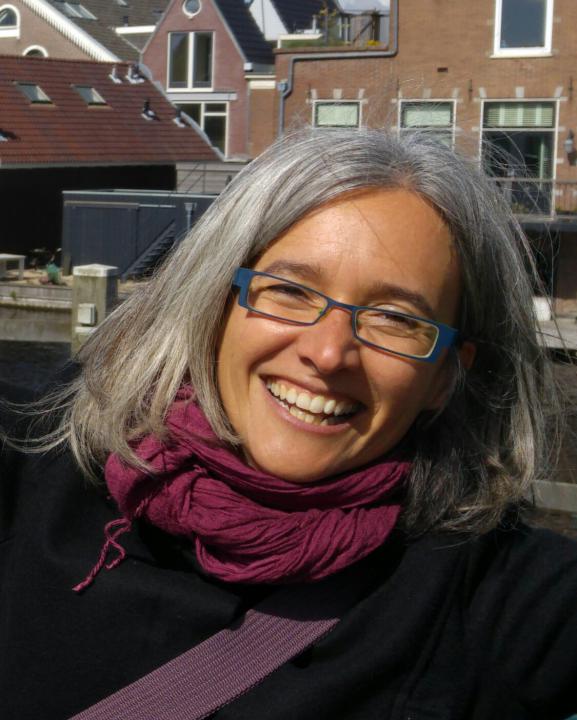
Eva Espinar
Doctor in Sociology. University Senior lecturer in the Department of Sociology of the University of Alicante. At this same university, she is the Vice President for Equality, Inclusion and Social Responsibility. She has been a visiting researcher at different European universities, such as Oxford University and the Swedish universities of Uppsala, Umeå, and Lund. She focuses her research in the areas of sociology of communication, social movements, and political participation. She is a member of the University Institute of Gender Studies Research (IUIEG) at the University of Alicante.
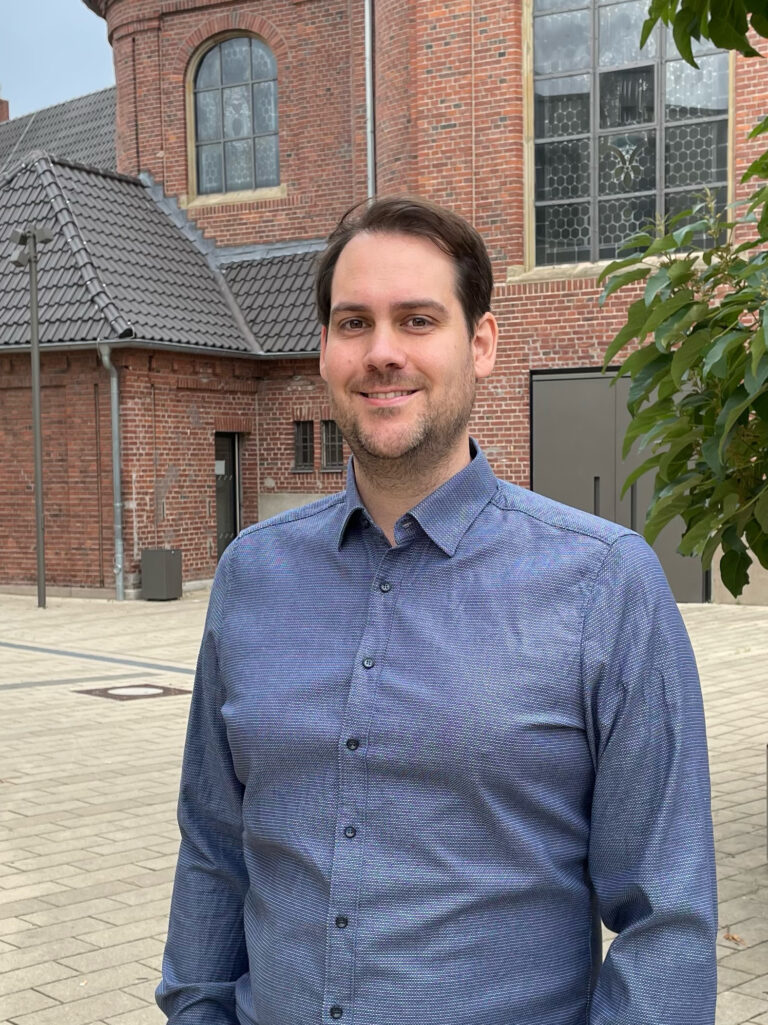
Fabian Stangier
Fabian Stangier is head of department in the Office for Integration and Diversity and is responsible for diversity management in the City of Cologne. In this position, he and his team are responsible for the issues of people with disabilities, LGBTQI, religion and anti-discrimination. Aiming to promote diversity, inclusion and equality in the city of Cologne. Previously, he was office manager in the North Rhine-Westphalian state parliament and advisor for the Hamburg Olympic bid, Hamburg Ministry of Culture and Media. He obtained his Master’s degree in Middle East Studies in Hamburg.
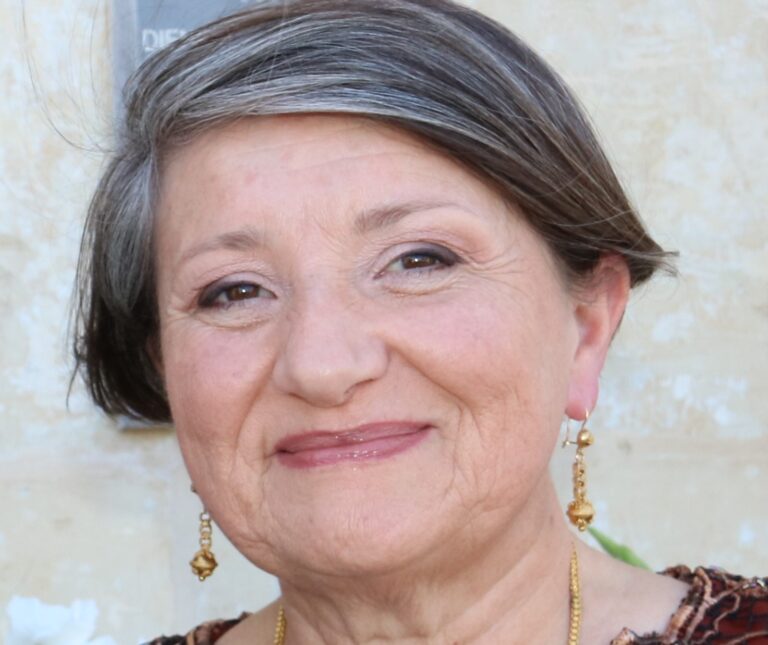
Maureen Cole
Associate Professor in social work, University of Malta. Her lecturing centres around social work theory and practice and social work supervision. Her research focuses on the practice and experience of social work supervision however she is also interested in social work education and in the development of the social work profession in Malta. She has published in these areas amongst others and from a personal perspective about live kidney donation. She served as the first Dean of the Faculty for Social Wellbeing, University of Malta and as Head of the Department of Social Policy and Social Work for a number of years. She is Rector’s Delegate for Student Wellness and has been one of the Sexual Harassment Advisors at the University of Malta since 1994.
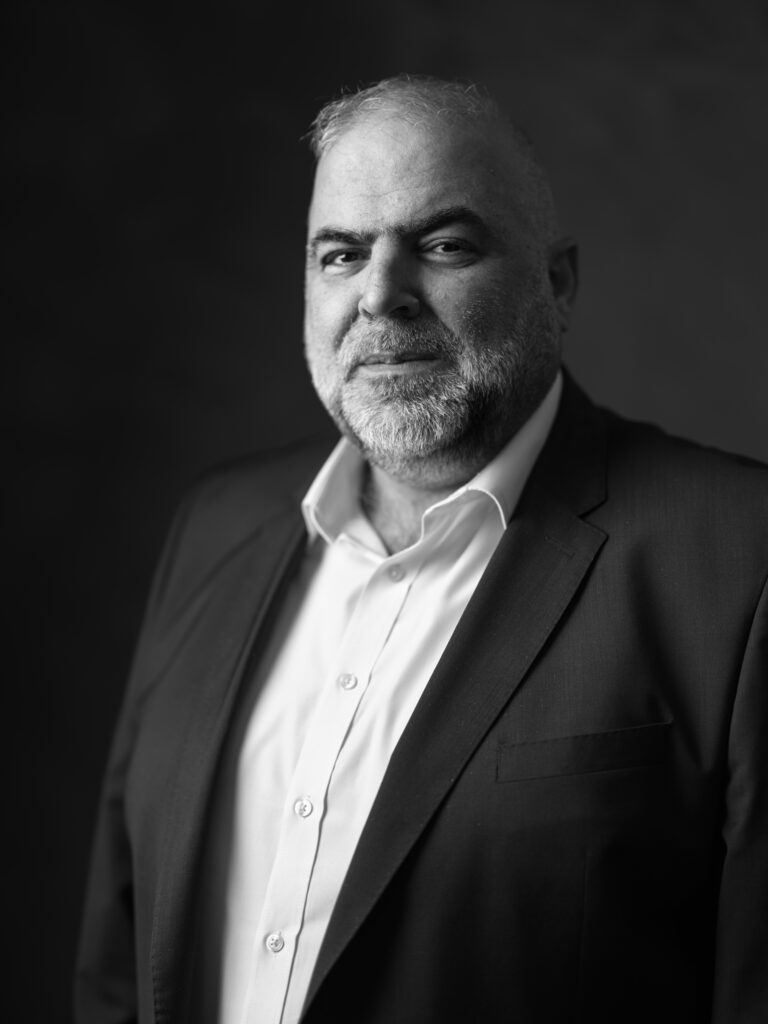
Marios Vryonides
Professor of Sociology and Research Methods at the European University Cyprus. He currently serves as Vice-Rector of Research and External Affairs. He got his PhD from the University of London (2003). His research interests focus on contemporary sociological theory, sociology of education and the theories of cultural and social capital. He is the president of the Research Committee on Sociology of Education (RC04) of the International Sociological Association (2018-2027).”
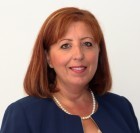
Carmen Sammut
Jako prorektor ds. Studenckich i pracowniczych oraz pomocy, jej obowiązki obejmują przewodniczenie uniwersyteckiej komisji ds. Równości, której zadaniem jest wdrażanie planu kapitałowego. Zajmuje również stanowiska dydaktyczne w Departamencie Mediów i Komunikacji oraz w Departamencie Stosunków Międzynarodowych. Jej wykształcenie akademickie obejmuje doktorat z mediów i komunikacji z Goldsmiths College, University of London, a jej zainteresowania badawcze i dydaktyczne obejmują dziennikarstwo, komunikację międzynarodową, komunikację polityczną i badania nad płcią.W latach 2017–2020 kierowała komitetem technicznym, który odegrał kluczową rolę we wprowadzeniu środków akcji afirmatywnej, których kulminacją było ustanowienie mechanizmu korygującego płeć, który zwiększyłby reprezentację kobiet w maltańskim parlamencie. Następnie w latach 2022–23 została powołana przez rząd do komitetu ekspertów medialnych w celu obrad nad reformami prawnymi w tej dziedzinie.
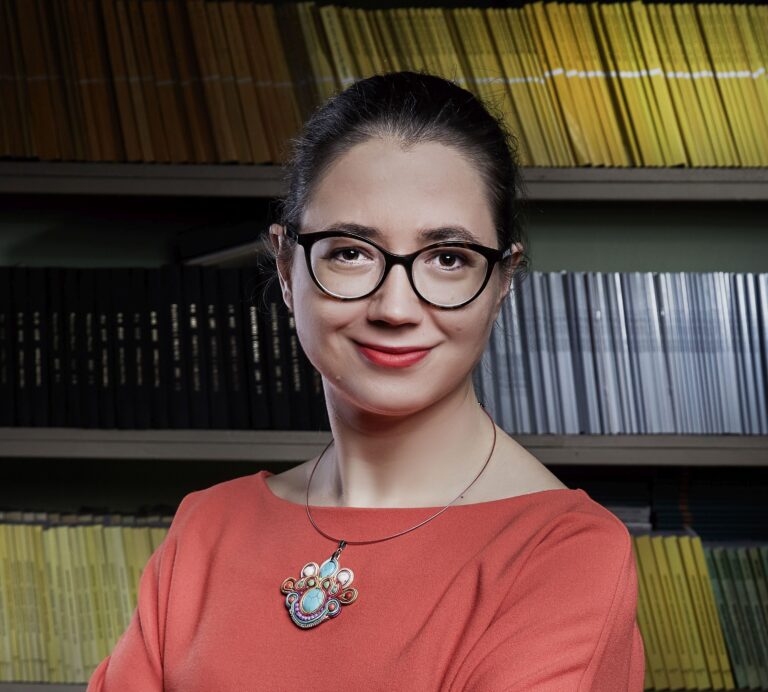
Katarzyna Sękowska-Kozłowska
Ph.D.; assistant professor at the Institute of the Law Studies of the Polish Academy of Sciences (ILS PAS), the head of the Poznań Human Rights Rights Center ILS PAS; member of the Scientific Council of the Interdisciplinary Center for Gender and Identity Research at Adam Mickiewicz University, expert of the European Commission and the Council of Europe. Her main research interests: international protection of human rights, counteracting discrimination with particular emphasis on gender discrimination (including violence against women, protection of reproductive rights, positive action; discrimination and gender stereotypes)
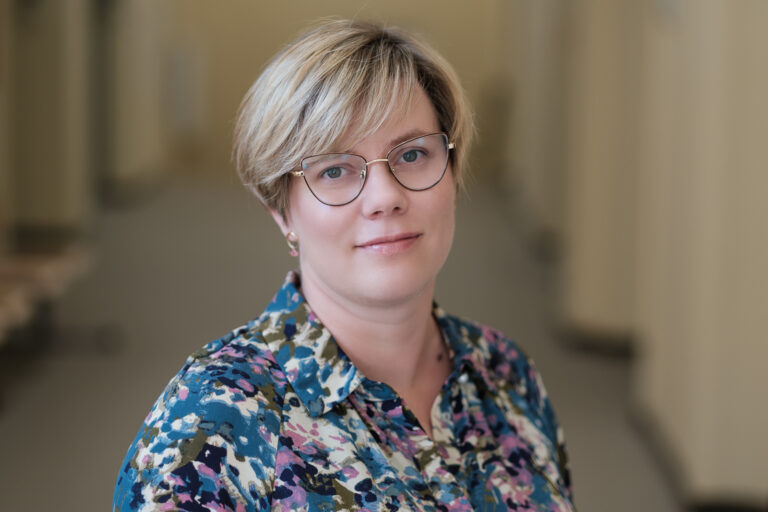
Dominika Gapska
Serbian philologist, employee of the University of Adam Mickiewicz in Poznań. Her research interests focus on the history of Serbian medieval literature, Slavic writing traditions, holiness, and spirituality of women. She is a graduate of the Academy of Young Diplomats at the European Academy of Diplomacy and a certified Science Trainer®. At AMU there are, among others: member of the Senate and the Senate committee for communication and social responsibility, the team for developing the GEP for Adam Mickiewicz University and the team for the European Charter for Researchers.
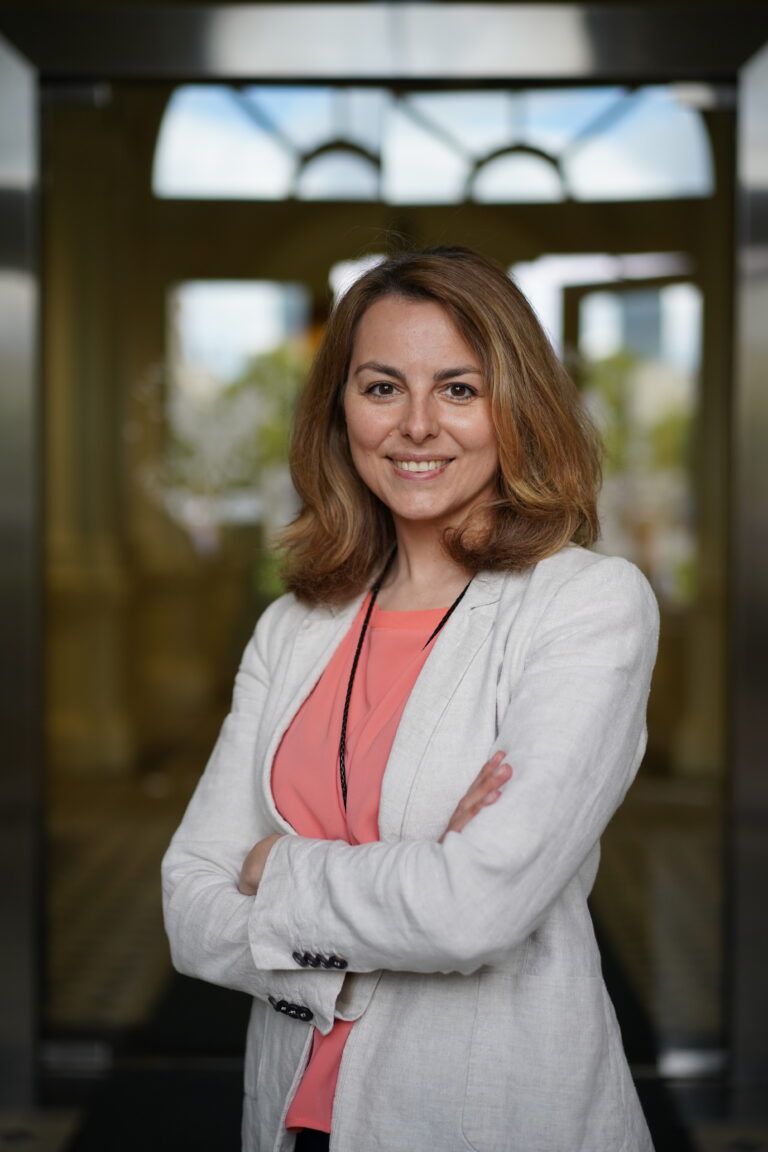
Anna Grędzińska
Chief specialist for equal rights at the University of Warsaw. Anti-discrimination coordinator. She is responsible for creating and implementing anti-discrimination policy, activities for equal treatment and diversity. Responsible for implementing the Gender Equality Plan for the University of Warsaw. Previously employed in the central administration – at the Ministry of Justice and the Ministry of Labor and Social Policy, where she was responsible for developing and implementing national and international solutions in the area of human rights protection and gender equality.

Marta Warat
Assistant professor at the Institute of Sociology of the Jagiellonian University. Her research interests focus on gender equality policy, gender sociology, democracy and citizenship. He participates in research projects financed by Horizon Europe on equality, gender and citizenship. Chairwoman of the Board of the Gender Equality in Central and Eastern Europe Community of Practice. In the years 2018-2022, member of the board of the Gender Sociology Section of the Polish Sociological Association.

Anna Cybulko
The Academic Ombudsman of the University of Warsaw from 2011. A graduate of the Faculty of Law and Administration and the Faculty of Psychology at the University of Warsaw, she obtained her doctorate in social sciences. Since 2006, she has been associated with the Center for Dispute and Conflict Resolution at the Faculty of Law and Administration of the University of Warsaw. She specializes in issues related to conflict resolution and interpersonal communication, as well as equality, diversity and anti-discrimination. European Equality Law Network expert in the field of gender equality.
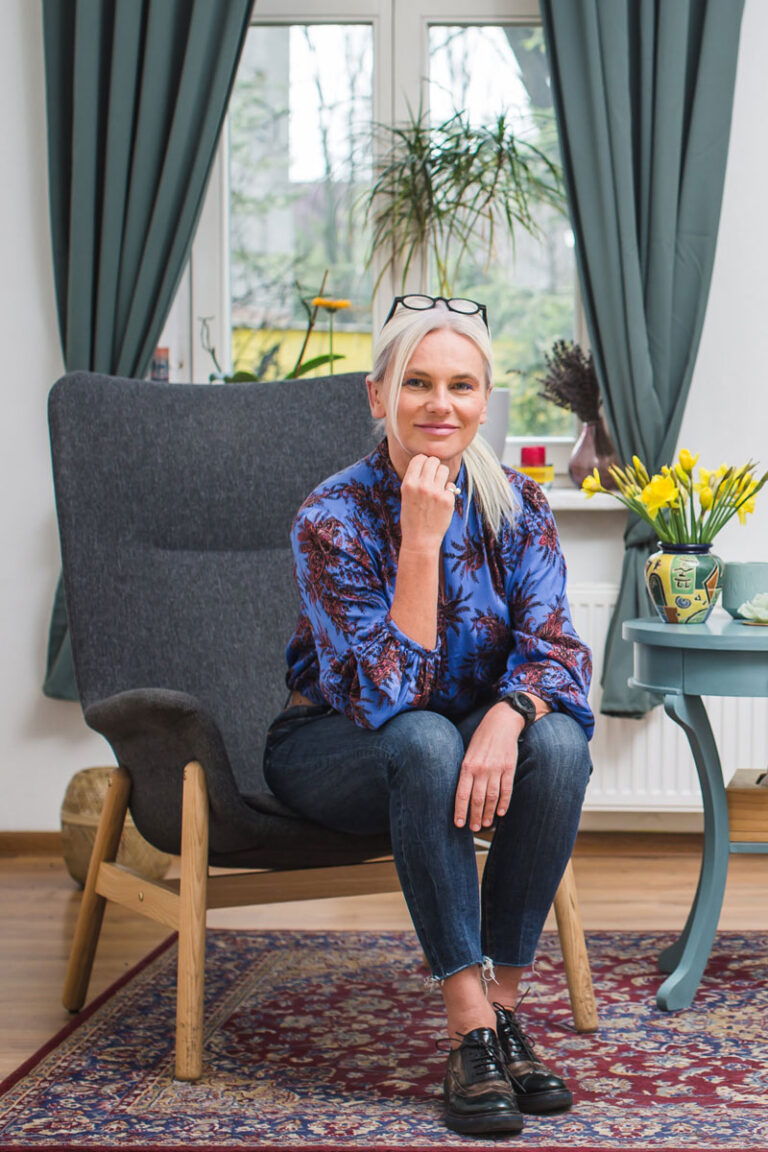
Agnieszka Bielska-Brodziak
Employed at the Faculty of Law and Administration of the University of Silesia as a university professor since 2006. She specializes in the interpretation of law and bioethics, especially the conflict of sexual identity and legal sex, as well as the ethical and legal status of animals. Since 2020, she has been appointed as the Ombudsman for students and doctoral students, defending the rights of people studying at the University of Silesia. She constantly develops her competences to provide them with legal and therapeutic support.

Roderick Vassallo
Vice-Principal at the University of Malta (UM) Junior College and holds a senior lecturer position within the Department of Biology. Over the years, he assumed the role of the department coordinator, demonstrating his commitment to academic excellence and administrative leadership. In his capacity as Vice-Principal, he oversees the welfare of both staff and students, amongst other duties, actively engaging in initiatives promoting human rights and social justice. His involvement extends to various UM committees, including the Committee on Race & Ethnic Affairs, Access Disability & Support Committee, Equity Committee, and as co-chair of the Gender Equality & Sexual Diversity Committee. Roderick has played a significant role in shaping the UM Gender + Equity Plan, showcasing his dedication to fostering inclusive environments within academic settings. His diverse interests span science, human rights advocacy, and LGBTQ+ activism, where he provides steadfast support to these causes. Outside academia, Roderick is an active participant in the artistic community, leveraging his training as an actor in various theatrical productions and artistic projects.
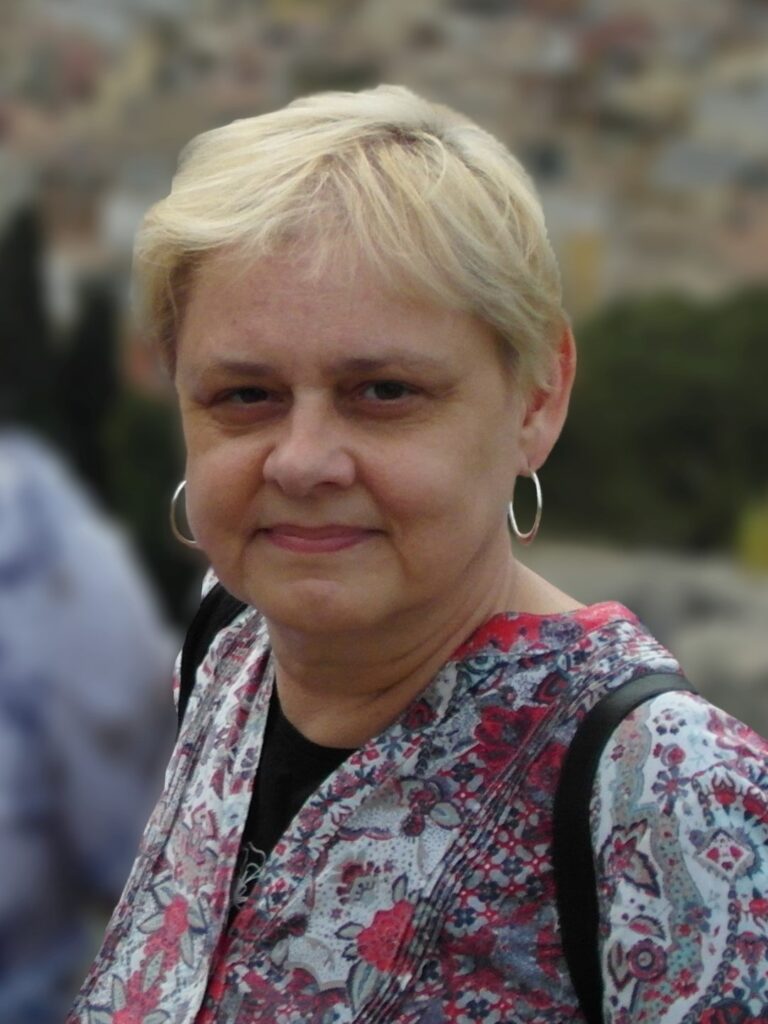
Barbara Mikołajczyk
Professor Barbara Mikołajczyk works at the Faculty of Law and Administration of the University of Silesia in Katowice and specialises in international public law and human rights. She is a member of the European Network on Law and Ageing Group (ELAN), the Odysseus Academic Network for Studies on Immigration Asylum in Europe, and the Polish Commissioner for Human Rights’ Group of Experts on Older Persons. She was appointed the ad hoc judge in the European Court of Human Rights. Her research is mainly dedicated to the human rights of various categories of vulnerable persons, such as migrants, refugees, children, women (gender pay gap issues), ethnic minorities, sexual minorities, and older persons.

Carmen Vives Cases
Lecturer at the University of Alicante in the field of Preventive Medicine and Public Health (since 2018). In October 2019, she received an honorary doctorate from the Faculty of Medicine at the University of Umëa (Sweden). Her research focuses on gender-based violence, gender inequalities in health, and immigration and ethnic minorities in public health.
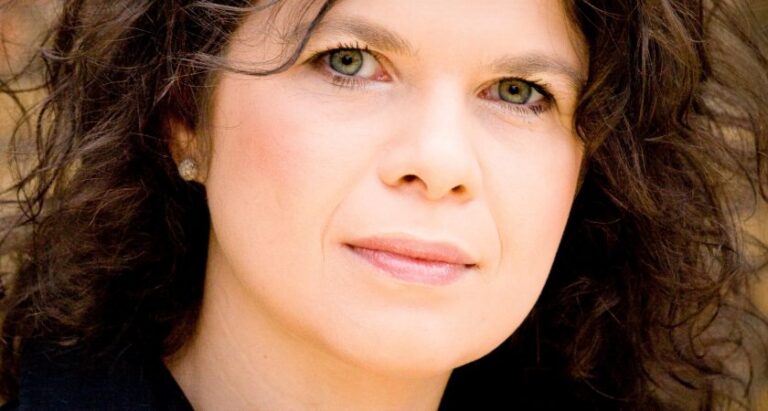
Iwona Chmura-Rutkowska
Sociologist and pedagogue, doctor of humanities in the field of pedagogy; she conducts research and works as an assistant professor at the Department of Sociology of Education at the Faculty of Educational Studies of Adam Mickiewicz University; researcher and consultant for projects in the field of hidden functions of education, counteracting violence motivated by stereotypes, anti-discrimination education, and women’s history studies. Co-founder and member of the Interdisciplinary Center for Research on Cultural Gender and Identity of the Adam Mickiewicz University, the “When science is a women” Team, the Team for Auditing and Monitoring Equality and Diversity of the Adam Mickiewicz University, the Foundation of the Museum of the History of Women. Author and co-author of scientific and popular science publications, as well as training materials and educational information regarding equal treatment for children, youth and adults.
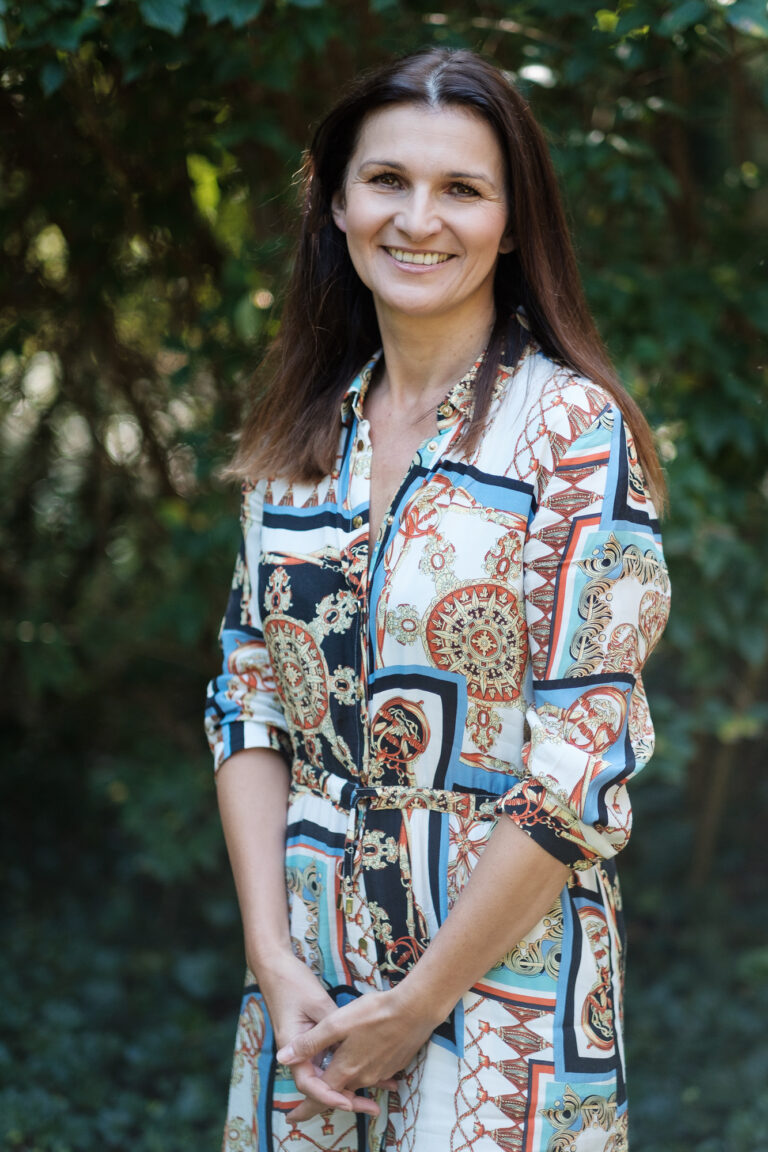
Katarzyna Waszyńska
Professor at the University of Adama Mickiewicza in Poznań, psychologist, pedagogue, clinical sexologist, specialist in sexual education, specialist in post-traumatic stress therapy, counselor in marital and family problems, head of the Health Promotion and Psychotherapy Laboratory. Member of the Team for anti-discrimination strategy and mediation and consultant for counteracting sexual harassment at the University of Adam Mickiewicz in Poznań. She is the co-author of the first study at this university on sexual harassment situations.
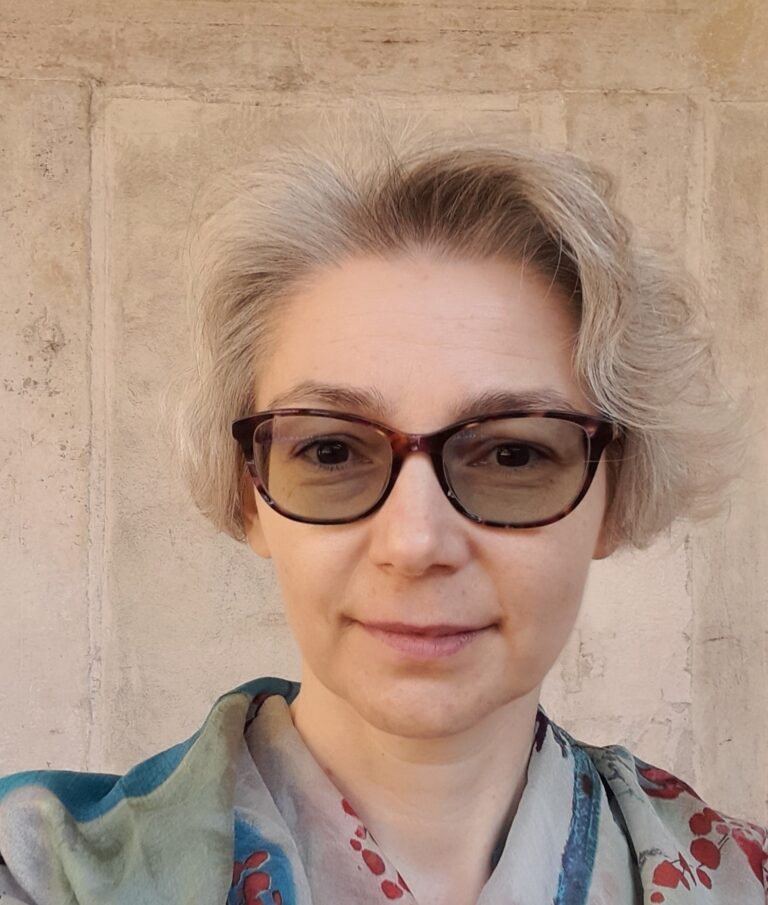
Aneta Ostaszewska
Professor at the Department of Social Pedagogy of the Institute of Social Prevention and Resocialization of the University of Warsaw; pedagogue and sociologist. She leads the Center for Women’s and Gender Research at the University of Warsaw. Her research focuses primarily on women’s rights and gender sensitivity. She coordinated research projects devoted to the feminization of the pandemic. She cooperates with international feminist organizations. She is the author of a book about bell hooks “Becoming bell hooks. A story about self-empowerment of a Black girl who became a feminist” (WUW 2023, open access).
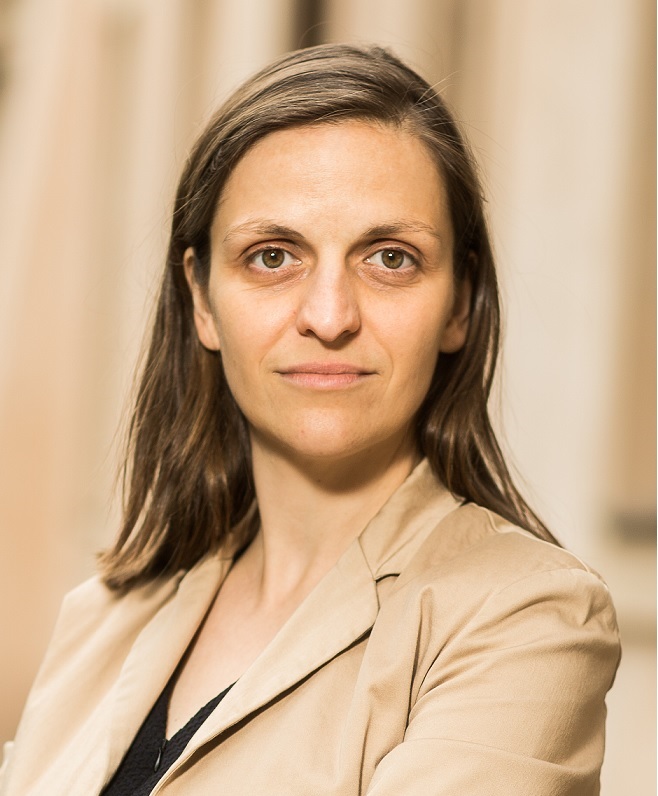
Ewa Krzaklewska
Assistant Professor at the Institute of Sociology of the Jagiellonian University in Krakow, sociologist. Her research interests relate to youth sociology, mobility and migration, and gender equality. She is involved in policymaking at both local and European levels, particularly concerning youth policy and gender equality. She participated in several projects related to gender equality including: GENERA. Gender Equality Network in European Research Area (2016-18, Horizon 2020) and ACT – Communities of Practice for Accelerating Gender Equality and Institutional Change in Research and Innovation across Europe (2018-2020, Horizon, as coordinator). Currently, She is a national coordinator of INSPIRE project aiming at creation of the European Centre for Inclusive Gender Equality in Research and Innovation (funded by Horizon Europe, 2022-2026).
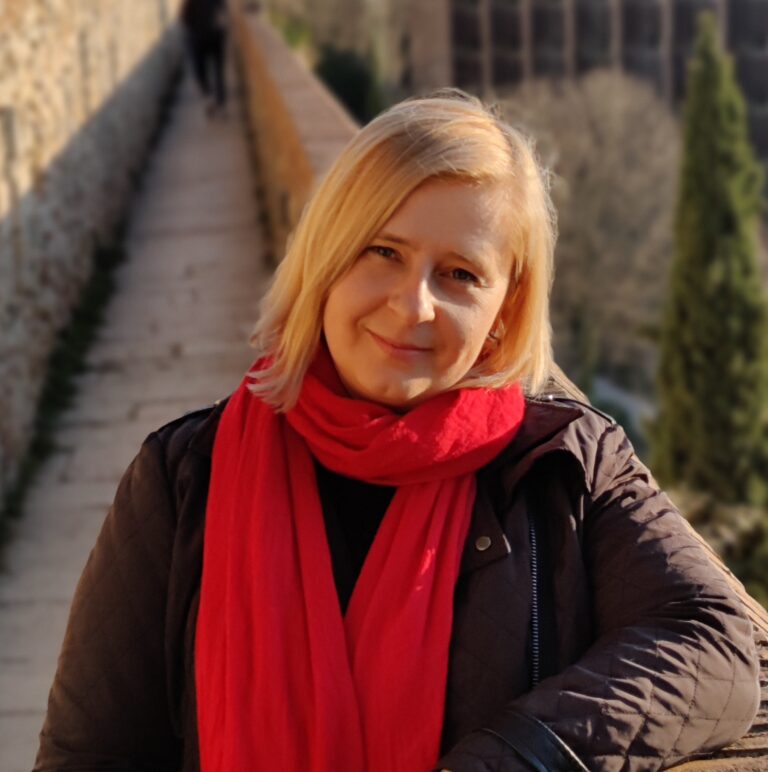
Magdalena Pokrzywa
Representative of the Rector of the University of Rzeszów for equal treatment, assistant professor at the Institute of Sociological Sciences of the University of Rzeszów. Sociologist and social worker conducting research in the field of sociology of gender and social problems. Her research interests include gender, intersectionality, social inequality, poverty and social exclusion. Participant of a research internship (postdoc) at The New School for Social Research (New York, USA).

Lidia Nwolisa
Founder and president of the Porta Foundation, whose mission is to support people struggling with exclusion and discrimination. He is a business coach with over 20 years of international experience. She gained corporate experience working for 10 years in international companies such as PricewaterhouseCoopers and Ernst & Young, both in Poland and Central and Eastern Europe. She completed management studies in Poland and Great Britain. She is a mediator of Non-Violent Communication.
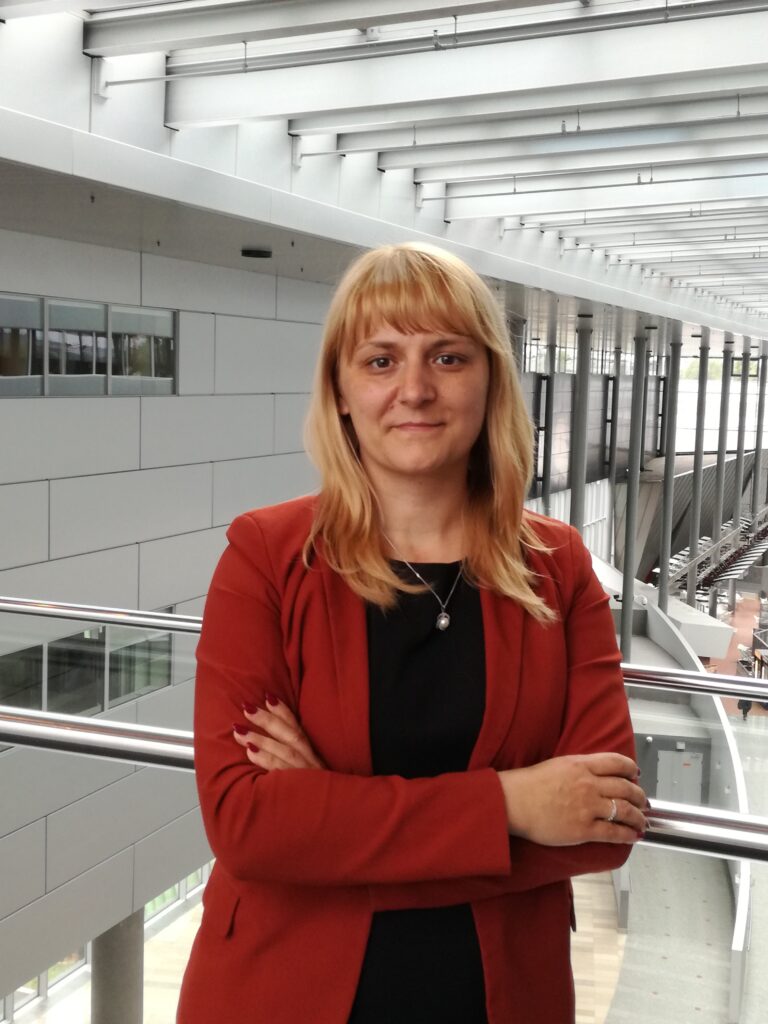
Aneta Sarnik-Sawicka
Leader of Wo-Men Equality Group at ING Hubs Poland with more than 20 years of experiences in international banking sector in risk and control management, programme and change management, non- financial and compliance risk management, payment and settlement systems management. Having 4 years of experiences in education sector at the University as a teaching associate with more than dozen research publications as an author or co-author.
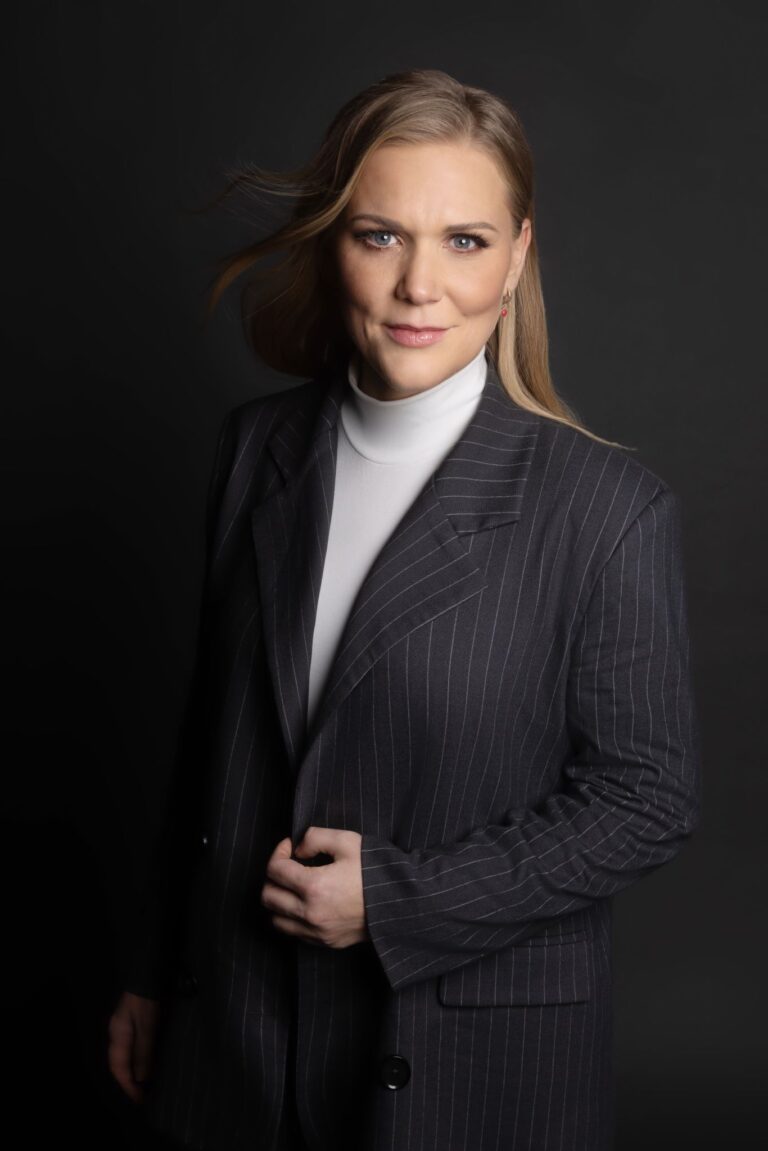
Marta Pszczoła
Head of Talent Management and Organizational Culture Transformation Department Santander Bank Polska, Business Partnership Division; Leader in HR Learning & Development. She has been successfully transforming leadership culture and changing the approach to learning at Santander Bank Polska. She has many years of experience managing teams, processes, and strategic projects in an international environment. She supports development initiatives aimed at women who aspire to become leaders and management boards members.
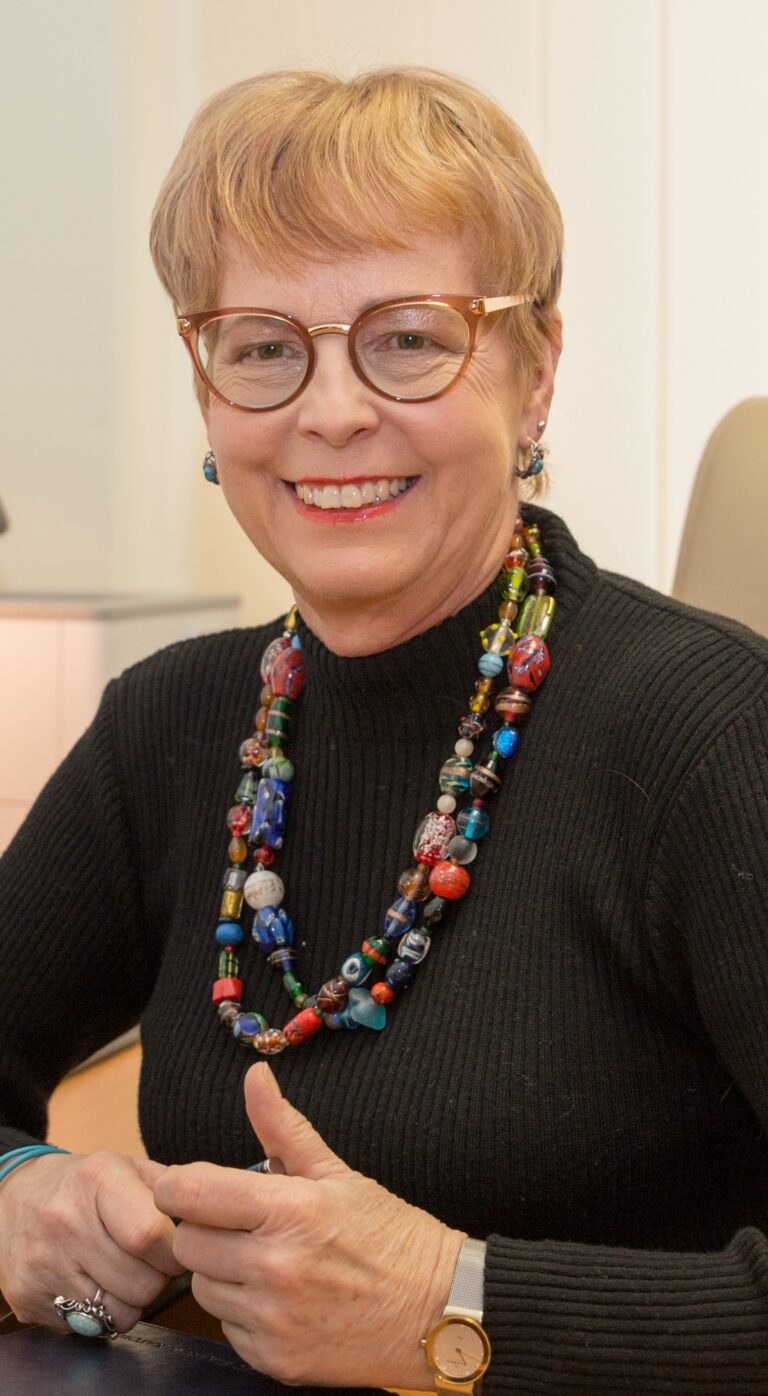
Katarzyna Daab-Borkowska
Representative of the President of Katowice for equal treatment. Clerk who is familiar with administration procedures and modes of operation. She has experience managing large teams, task groups, administration, and international cooperation. She deals with consumer counseling and education. From 2023, it supports the Mayor of the City in the implementation of equality and anti-discrimination policy. It cooperates with organizations working to counteract discrimination, including the nationwide network of plenipotentiaries for equal treatment established in cooperation with the Association of Polish Cities.
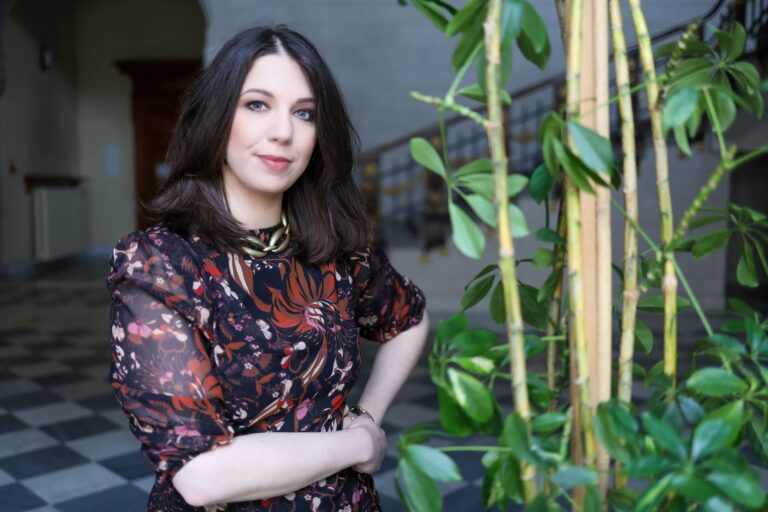
Nina Gabryś-Janowska
Representative of the Mayor of the City of Krakow for equality policy, Councilor of the City of Krakow (2018-2020), President of the Council for Equal Treatment in Krakow. Initiator of the creation of the Kazimiera Bujwidowa Prize for outstanding Krakowians and co-founder of the first “Gender Equality Plan” in Poland at the level of local government. She graduated from the Jagiellonian University at the Faculty of History, specializing in anthropological history, focusing in her scientific work on the history of exclusion, stigmatization, and history of women. She served as a spokeswoman for the “Wikimedia Polska” Association”. She was, among others, the initiator of the civic project „In vitro for Krakowians/ek”. As a co-founder and vice-president of the Association „Sto Years of Women’s Voice” she organized nationwide celebrations of the century of granting voting rights to Poles. She was the author of the action „Independent culture of women”. She is a graduate of the French Ministry of Foreign Affairs “Future Leaders Invitation Program (PIPA)”, a scholarship holder of the international „Humanity in Action program” and „Advanced Leadership Program for Top Talents” organized by the Center for Leadership. Since 2021, she has acted as a spokeswoman for ethics at the Academy of Theatre Arts in Krakow. Winner of the first edition of the plebiscite of 16 Equality Leaders (Women’s Congress & British Embassy).
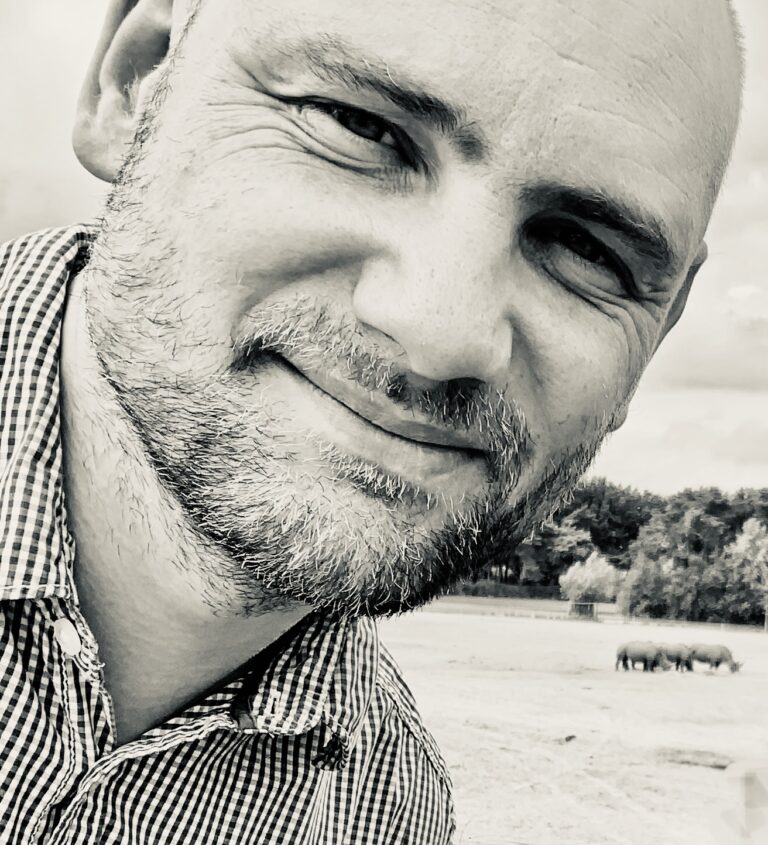
Adrian Robak
Adrian Robak is a lecturer and composer, author of study programs, and initiator of reforms. He has been employed at the Faculty of Arts and Educational Sciences at the Univesity of Silesia since 2023 and from 2022 as a university professor. Previously, he served as Deputy Dean for Education and Student Affairs at the Krzysztof Kieślowski Film School at the Univesity of Silesia, where he was also the faculty coordinator for accessibility and supervisor of the “Mentoring DUO” program. He is co-chair of the Equality and Diversity Committee, engaging in research and educational projects, demonstrating his commitment to creating better conditions for education and the university’s development. He continues the university’s mission to create an open and inspiring academic environment that supports diversity, equality, and inclusion and contributes to local and international communities’ well-being and sustainable development.
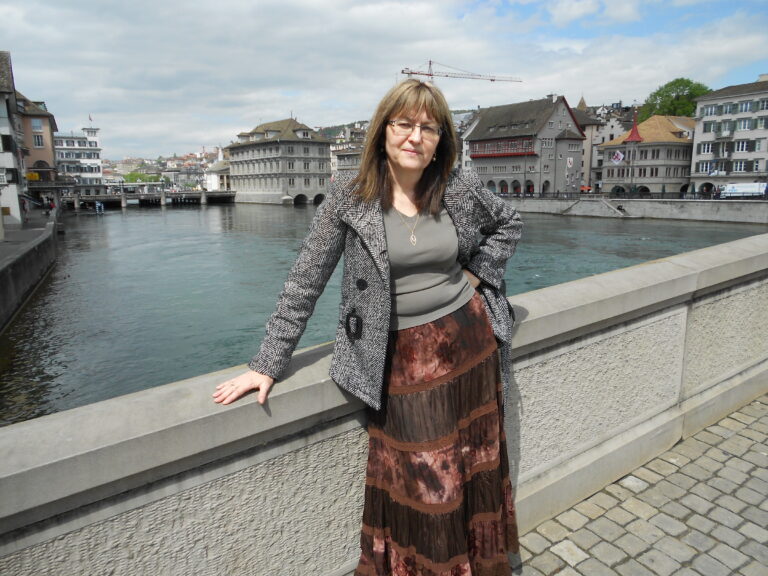
Jolanta Tambor
Professor, Institute of Linguistics, University of Silesia in Katowice. Interests: linguistic situation in Silesia, Polish language glottodidactics, phonetics and phonology of the contemporary Polish language, linguistic image of the world. Director of the School of Polish Language and Culture of the University of Silesia, Representative of the Rector of the University of Silesia for foreign students, Chairwoman of the Scientific Council of the Regional Education Program. Author of the books: The speech of Upper Silesians and their linguistic and ethnic awareness (2006, 2008), co-author. Das Schlesische und seine Sprecher/Silesian lekt and its users (2022) and Inclusive toolkit for functions and positions at the University of Silesia (2023).
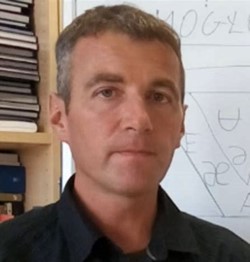
Ireneusz Kida
Professor at the University of Silesia in Katowice. His research interests focus on the origins, development, change, diversification, and division of language in general, with particular emphasis on syntax. He studies mainly Indo-European languages compared to representatives of other language families (such as Khamito-Semitic, Austronesian, Sino-Tibetan, Quechuan, Thai). In addition to research on the history of language, typology of world languages and contrastive studies, he also deals with broadly understood identity, with the main emphasis on language, culture and religion.

Joanna Warmuzińska-Rogóż
Lecturer at the University of Silesia in Katowice; literary scholar, and translation expert; she graduated in Romance philology at the University of Silesia (2001), political science at the École inernationale d’Études politiques UŚ (2002) and postgraduate studies for conference interpreters; She defended her doctoral thesis on the literary figure in Jean Giono’s Novel Chronicles (2005). Author of several dozen scientific publications on Quebec literature and literary translation. Until 2019, assistant professor at the Department of Literary Research and Literary Translation, University of Silesia; in 2016-2019, deputy director of the Institute of Romance Languages and Translation for Science; since 2019, deputy director of the Institute of Literary Studies of the University of Silesia. Sworn translator of French.
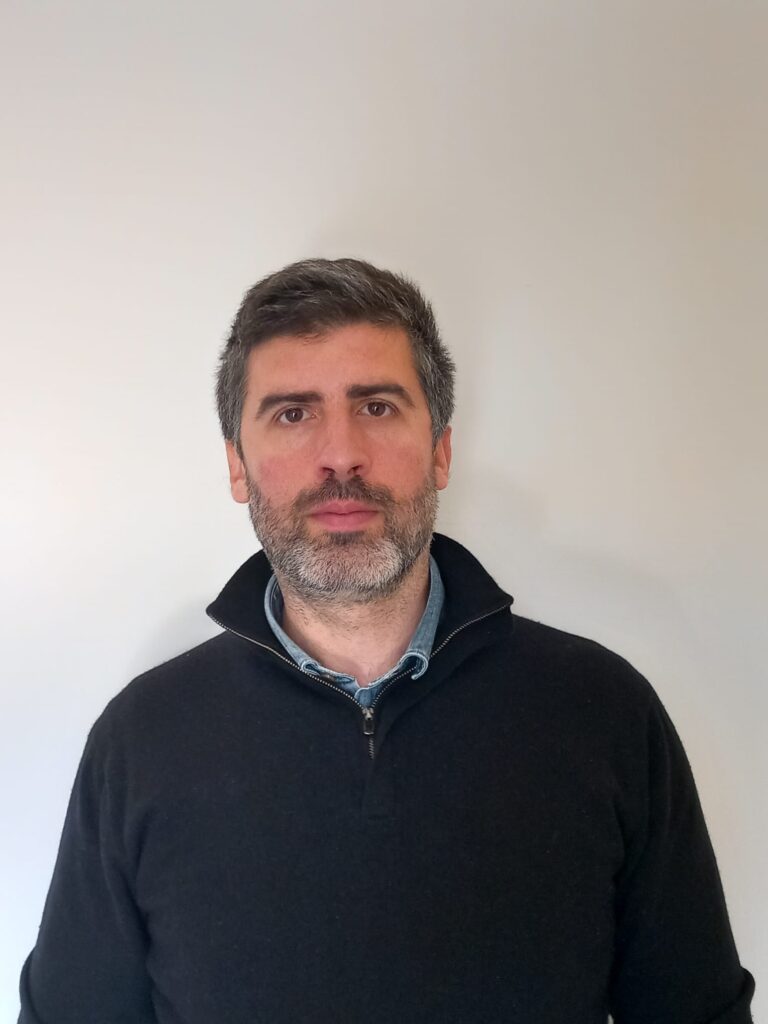
Marco Navarra
A research fellow at the University of Salerno on the project “European planning, social development, identity and cultural memories” and founder of EUNIVERSITY, a research and innovation body in the field of social sciences and humanities. Over the last ten years he has participated in European projects on the topics of lifelong learning, media literacy, urban regeneration, e-learning and gender issues. He led the establishment of public-private partnerships for the sustainable development of inland areas. He is a contract lecturer at public and private institutions, both Italian and foreign, on the topics of cultural planning and project cycle management. His research interests range from cultural and communication processes to regional sciences, with a particular focus on culture-driven participatory local development processes.
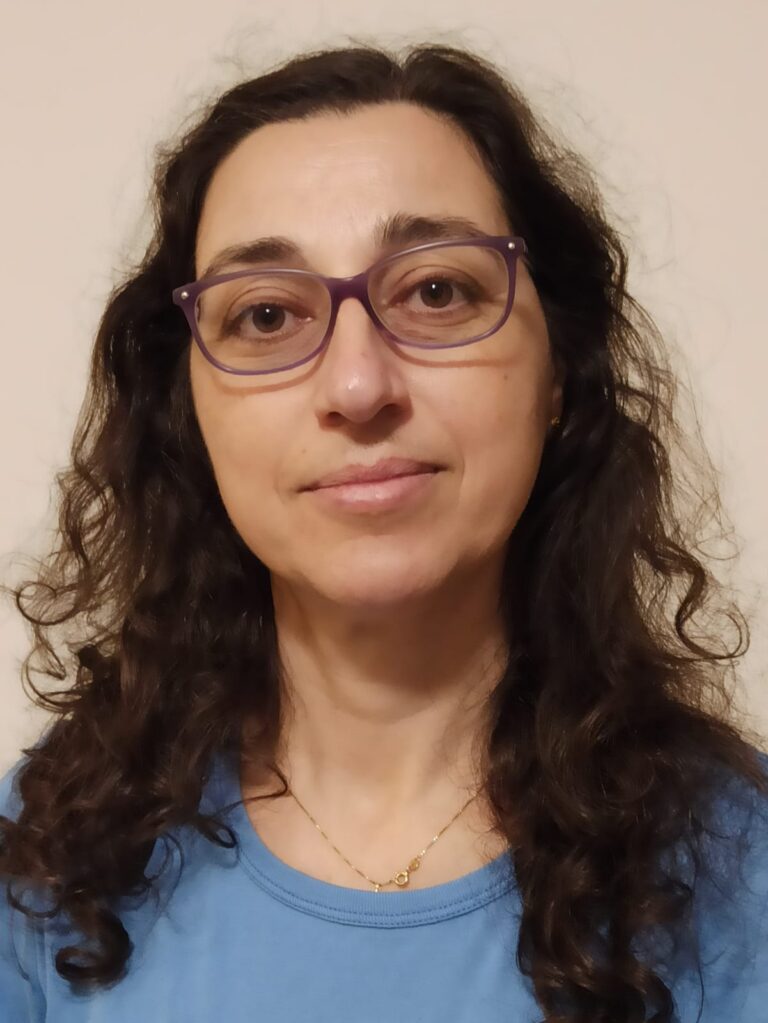
Marina Appiou Nikiforiou
Assistant Professor of Mathematics at the Department of Computer Science and Engineering in the School of Sciences at European University Cyprus in the filed of mathematic. Her research interests include Geometric topology and algebraic structures. More specifically, she focuses on Knot theory and quandle cocycles. In recent years, she has also been interested in how technology affects teaching and learning mathematics and statistics at college-level students. She has worked in various Erasmus+ projects concerning Mathematics education and Technology, like developing open educational resources for teaching math in high school level using gamification and implementing Jupyter notebooks for teaching math and physics to college level students. She is engaged in a project working towards gender equality in academia.
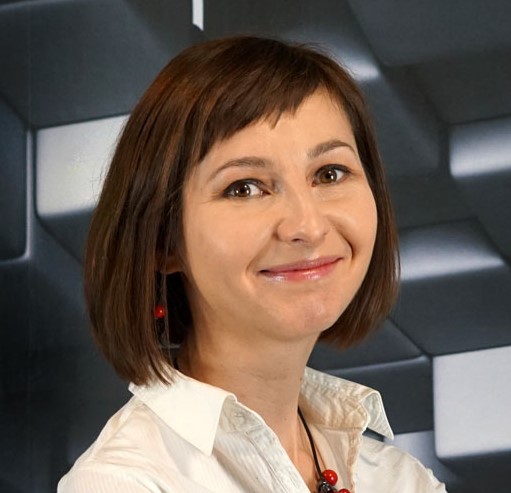
Marta Margiel
Assistant professor at the Faculty of Humanities. Initiator, author and coordinator of many national and international educational projects External expert of the Ministry of Funds and Regional Policy in the field of innovation and transnational cooperation. Research interests: Diversity and equality in EU, inclusive education, participatory evaluation. Non-formal educator and evaluator. Very active in NGO sector.
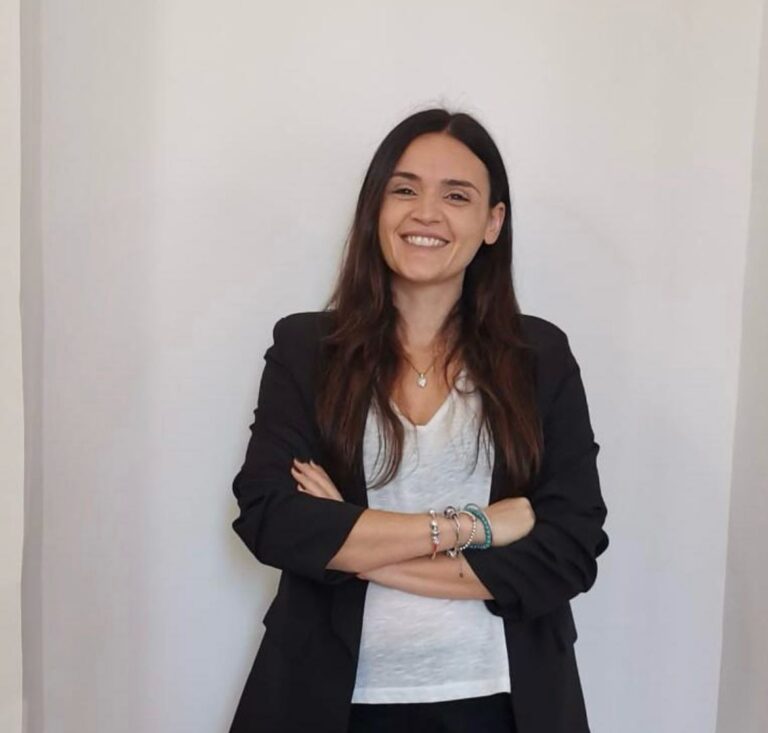
Luna Carpinelli
Psychologist and Psychotherapist. Research fellow M-PSI/04 Developmental Psychology at the Department of Medicine, Surgery and Dentistry, University of Salerno. Her research interests use a qualitative-quantitative approach and focus on specific areas of clinical development such as childhood maltreatment and abuse, anorexia nervosa in adolescence, and caregiver burden. In addition, a key aspect of the applied research is the specific interest of gender issues in formal and informal settings and gender medicine.
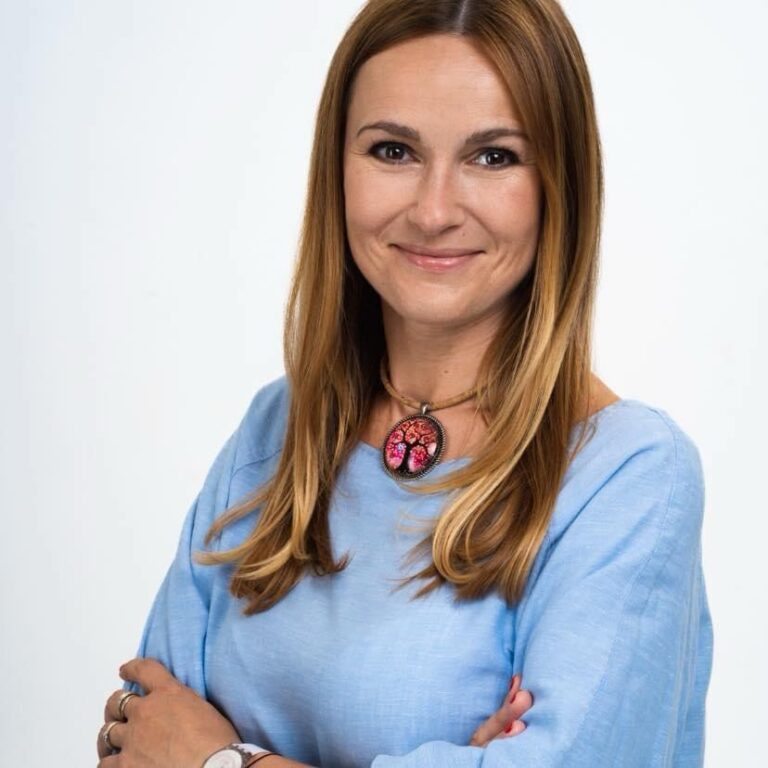
Magdalena Półtorak
Ph.D. in legal sciences affiliated with the Faculty of Law and Administration of the University of Silesia; director of courses: Entrepreneurship, IBLA, Environmental Administration.Member of the team creating and implementing the Gender Equality Plan at the UŚ, co-chair of the Equality and Diversity Commission, and coordinator of one of the results of the GEPARD project.Academically, she works on legal guarantees of gender equality, international protection of women’s rights and WLB, whiledidactically – EU Law and Public International Law. She also coordinates the author’s modules: Gender Equality in the Society, Women’s Rights, and Gender Equality in the Society – legal aspects.
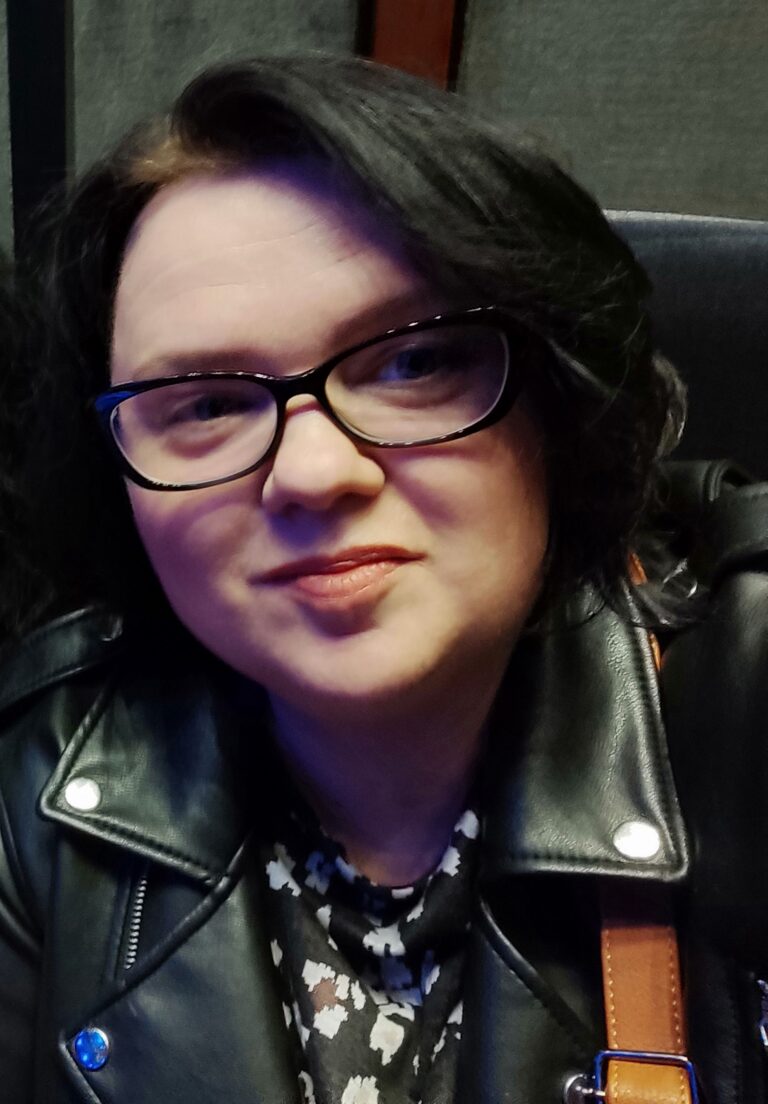
Aleksandra E. Adamczyk
A graduate of the Faculty of Philology of the University of Silesia and Computer Science at the Academy of Humanities and Economics in Lodz. She works as a curator at the Scientific Information Centre and the Academic Library. She has published on her account, including articles in peer-reviewed journals. She participated in national and international conferences, events popularizing science. She works in editorial teams of university systems. She took part in the design work. She has exhibitions and original graphic designs on his account. She is the author of the logotype of the largest regional repository: Silesian Digital Library. Her passion is also music. She created several jingles: one of them accompanies the Library’s guests every day.
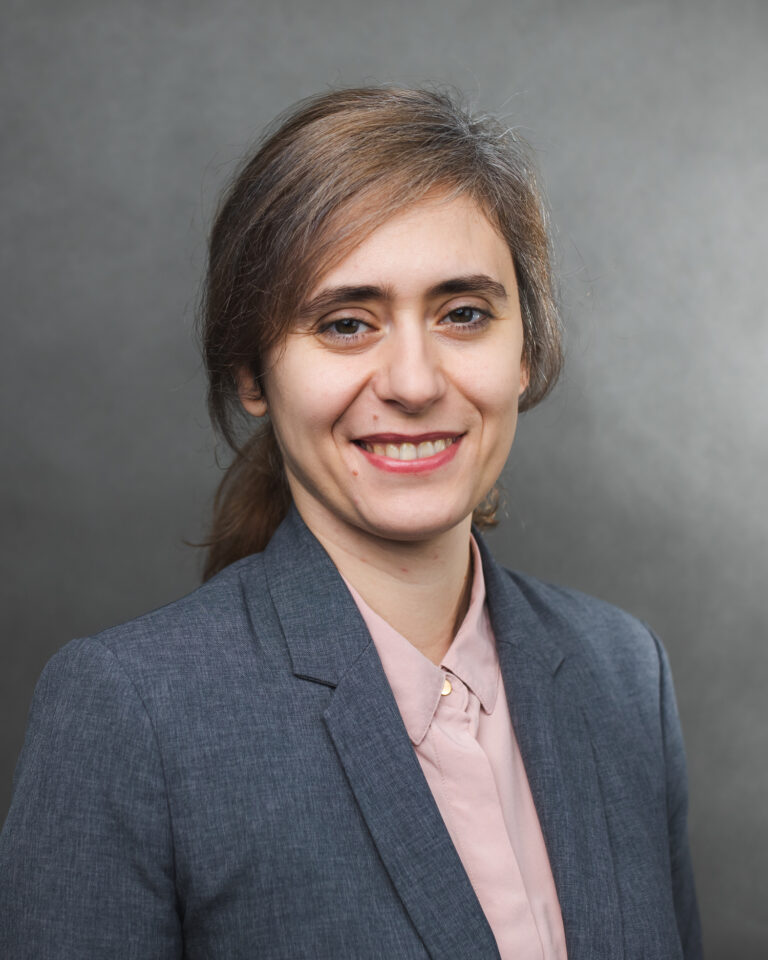
Dagna Kocur
Psychologist, lecturer at the University of Silesia in Katowice; her scientific interests focus on social psychology, romantic relationships, mindfulness, and compassion. She is a teacher of an 8-week Life Course based on mindfulness (certified by the Mindfulness Association Polska). She conducts research, classes at the University of Silesia teaching, and mindfulness meditations. She also serves as the Rector’s Plenipotentiary for counteracting sexual harassment at this university. She conducts workshops and training on counteracting sexual harassment.
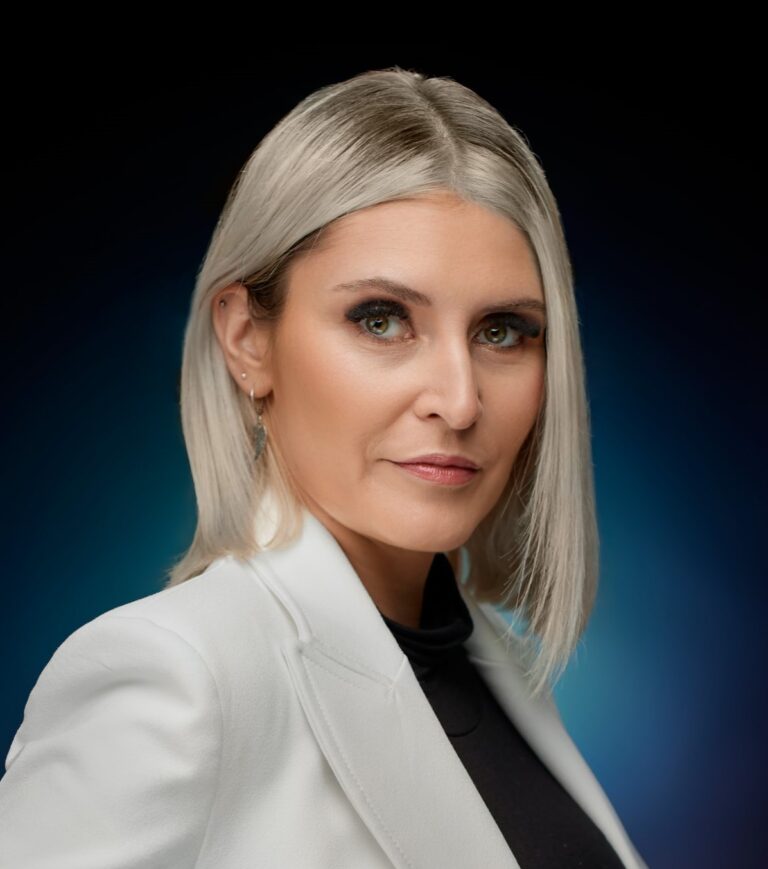
Monika Ryndzionek
Specialist for gender equality in PR Horyzont Europa, National Contact Point for Horizon Europa, National Centre of Research and Development. Researcher of socialization processes in the family, dealing with the issue of social inequalities, mainly due to gender. Author of publications on the border of pedagogy and sociology of education, including books “Transgressive trajectories. Changes in social status in a biographical perspective” (Kraków 2011) and “Women in intimate relationships. An empirical-critical study” (Warsaw 2017). She has extensive experience conducting training, workshops, coaching, and mentoring sessions.

Dominika Bek
Dominika Bek, PhD in legal sciences, assistant professor at the Institute of Legal Sciences of the Faculty of Law and Administration at the University of Silesia in Katowice, criminal law specialist, member of the Equality and Diversity Commission of the University of Silesia in Katowice, mediator in criminal cases at the Silesian Centre for Arbitration and Mediation in Katowice, editor-in-chief of the semi-annual journal “Forum Polityki Kryminalnej”, author of numerous scientific publications in the field of substantive criminal law and criminology, including prevention of violence against women and domestic violence.

Petr Simon
Petr Šimon graduated from the Faculty of Education at the University of West Bohemia, where he studied both the Czech and French languages. He has been responsible for societal safety and equal opportunities at the University of West Bohemia since 2021. In January 2024, he was appointed as the university ombudsperson. He has been coordinating several international projects focused on education, equal opportunities, and/or inclusion.Petr Šimon is the president of the Alliance française de Plzeň, in 2015, he was decorated with the Knight in the order of the Palmes Académiques for his activities carried out within the international cooperation.

Helen Dalli
Komisarz ds. równości Komisji Europejskiej

Roberta Metsola
Przewodnicząca Parlamentu Europejskiego

prof. dr hab. Zbyszko Melosik UAM
Socjolog edukacji, pedagog, badacz tematyki tożsamości płciowej, prorektor ds. współpracy z otoczeniem UAM

Marcela Linkova
Marcela Linková PhD is the head of the Centre for Gender and Science at the Institute of Sociology of the Czech Academy of Sciences. Her research focuses on the sociology of gendered organisations and institutional change, gender-based violence in academia, governance of research, and public policies for gender equality in R&I. Marcela is the Member State Co-Chair of the ERA Forum subgroup on inclusive gender equality and coordinates Horizon Europe project GENDERACTIONplus. Previously, she has participated in multiple Horizon 2020 projects including UniSAFE focused on gender-based violence in academia.

dr JosAnn Cutajar Uniwersytet Maltański
Badaczka problematyki gender, Dyrektorka Departamentu Gender and Sexualities faculty for Social Wellbeing

prof. dr hab. Agnieszka Gromkowska-Melosik
Badaczka nierównosci społecznych oraz w nauce w kontekście płci oraz współczesnego feminizmu UAM

Dr Caitriona NiLaorie, University of Cork, Irlandia
Badaczka gender inequalities and gender identities
